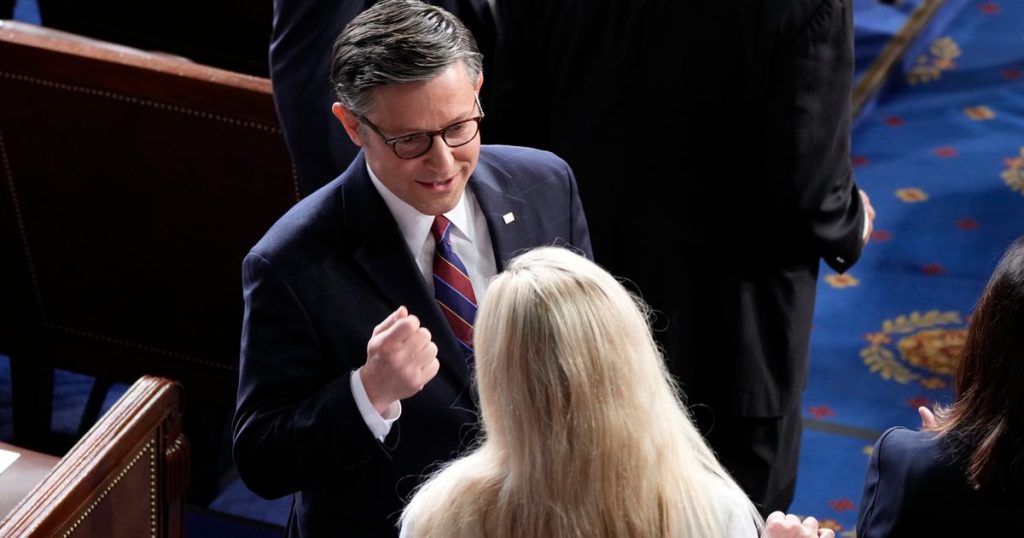House Speaker Mike Johnson, facing the threat of a revolt within his own party if he allows a vote on aiding Ukraine, may need Democratic support to retain his position. However, many Republicans view any help from across the aisle as a reason to oust him, putting Democrats in a difficult position. Despite their political differences, Democrats support providing aid to Ukraine and are willing to work with anyone to make it happen. However, the internal turmoil within the GOP complicates the situation, with Rep. Marjorie Taylor Greene threatening to call a vote to remove Johnson if aid to Ukraine is brought to the floor.
With Republicans having only a slim majority in the House, the threat to Johnson’s leadership is real, especially with Rep. Mike Gallagher’s imminent resignation further reducing their numbers. Johnson has laid out a plan to provide aid not only to Ukraine but also to Israel, Taiwan, and other national security measures favored by Republicans. However, the situation on Capitol Hill has become tense and awkward, with former President Donald Trump hinting at the possibility of Johnson being ousted and Rep. Thomas Massie suggesting that the GOP is apprehensive about a repeat of the chaotic speaker selection process from October.
Kevin McCarthy, the first speaker ousted from the floor, has blamed Democrats for his exit, while House Democratic Leader Hakeem Jeffries has avoided directly addressing whether Democrats would support Johnson in this scenario. Many Republicans believe that a speaker relying on Democratic support is unsustainable and politically untenable. Even those who do not support Johnson’s ouster are wary of the implications of a speaker retaining power solely due to Democratic votes. The internal divisions within the GOP and the uncertainties surrounding Johnson’s future have created a volatile and uncertain political environment in the House.
The prospect of a Democratic-backed Johnson as speaker is deemed unsustainable by many Republicans, who believe that this would not be accepted by their constituents, especially given the party’s ideological differences with the Democrats. Despite the ouster effort being led by only a few members, some Republicans are confident that Johnson will not compromise or make deals to save his position. The lack of willingness from potential successors within the Republican caucus also poses a challenge, as the speaker position remains a contentious and highly sought-after role within the party.
Representatives like Jim McGovern, a top Democrat, are caught in a dilemma as they support providing aid to Ukraine but are wary of the potential consequences of Johnson being ousted or retained with Democratic support. The internal strife and conflicts within the GOP have created a dysfunctional atmosphere on Capitol Hill, with animosity between members hindering legislative progress. Overall, the political tensions surrounding Johnson’s leadership and the aid to Ukraine issue highlight the deep divisions within Congress and the challenges of bipartisan cooperation in the current political climate.


